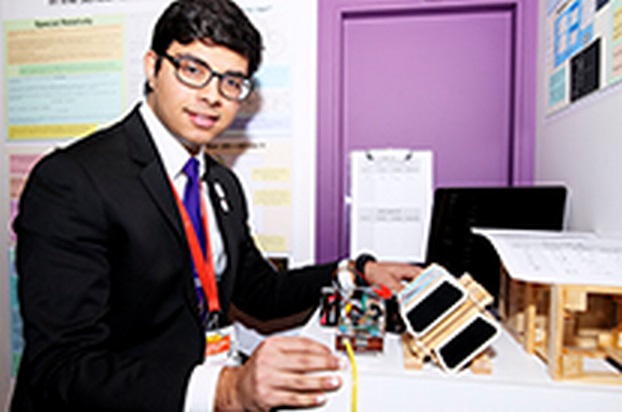
Pratap Singh, a 15-year-old Indian-origin student in the United Kingdom, won one of the most prestigious awards – Institute of Physics Prize – for his experiment to verify an effect of Albert Einstein's special relativity theory.
The award was conferred on Singh at the Bing Bang Fair organised at the National Exhibition Centre in West Midlands's Birmingham city from 11 to 14 March. The teenager was among more than 200 students between the age of 11 and 18 years who reached the finals of the National Science and Engineering Competition.
The award, which includes £500 cash prize and a trip to a national physics-related activity was presented to him on 12 March, IOP press release said.
The Institute of Physics (IOP) described his experiment as outstanding and remarkably compact to fit inside even a shoebox.
Singh had used "two Geiger-Müller tubes to detect cosmic-ray muons, which should not reach the Earth in detectable numbers unless time dilation occurs. He created a mathematical model for their arrival rate with and without time dilation, and using a Raspberry Pi and some statistical analysis, showed that they follow the model predicted by special relativity," the release said.
Johanna Kieniewicz , IOP's head of outreach and engagement, regional officer for the Midlands and one of the judges of Singh's experiment, congratulated him for his "outstanding project".
"He demonstrated remarkable creativity in his approach to the problem, bringing together theory grounded in robust science with practical ingenuity," Kieniewicz said.
Who is Pratap Singh?
The 15-year-old is a student at The Perse School in Cambridge and likes Physics. His interest in the subject prompted him to work on his project that brought him one of the top prizes in Physics.
Elated at winning the IOP award, Singh said that his research project helped him come up with the idea of creating a mathematical model.
"I am absolutely thrilled to have won the IOP prize. I have always been very interested in physics and so when it came to the time for my research project – a year-long opportunity we get at our school to study any topic of our choosing – I of course wanted to do something in physics," Singh said.
"I am especially happy that over the course of this project I was able to bring together the theory, create a mathematical model, and using just school physics lab equipment build an apparatus to observe relativistic time dilation," he added.

















